Genre: Platformer Developer: Wisdom Tree Publisher: Wisdom Tree Players: 1-2 Released: 1993
It’s pretty much an undisputed fact that Wisdom Tree’s best effort on the Genesis was Joshua and the Battle of Jericho. The game shames its unlicensed bedfellows and can even hold its own against comparable puzzlers. What most people aren’t aware of is that Joshua is actually a sequel, and today we’re going to review the original, Exodus: Journey to the Promised Land. I say “sequel,” but since the storyline doesn’t really matter with these games that’s probably not the best term. You should think of Joshua as simply an expansion pack to Exodus, offering more of the same except with better presentation. Because as far as gameplay goes, the two games are almost identical.
That’s a good thing, right? Well, although one would have liked to see some innovation with Joshua, you can’t really complain about the formula. The mechanic of collecting a certain number of items in order exit the level is simple to grasp, and the designers came through admirably in making that seemingly uncomplicated goal very hard to achieve. Obstacles abound. All the various tiles are placed so you have to stop and think about what you’re doing; a quick mind is required all the same, thanks to an unforgiving timer and maps that are in almost constant motion. Conditions change in the blink of an eye and multitasking is essential. Jacking the tension meter sky-high is a one-hit-death system, or in many cases a “one-pixel-overlap” system. There are so many ways to die, and often claustrophobic levels allow little room for maneuvering.
Thankfully the game eases you into all this chaos gradually. With over a hundred levels to go through, there’s certainly time for you to take it slow and get accustomed to things. (A manual is still helpful, due to the game’s almost cryptically iconic nature.) Players can learn the plethora of tactics and strategies required for success at their own leisure. If the designers had dumped all of this on newcomers at once, Exodus would almost certainly be unplayable. That more than anything else should give you a good idea of the difficulty of this game. The challenge reaches a heinous level by the time the game finally gets around to throwing all its tricks at you simultaneously. Still, that’s when Exodus – much like Joshua – really hits its stride.
What might be more trying for some than the actual game, though, is just making it to those higher levels of puzzling brilliancy. This shouldn’t come as much of a surprise considering the developer, but it must be said: Exodus looks bad and sounds even worse. Wisdom Tree’s reputation for, ah… “uninspired” ports is not unfounded. This was originally an NES game, and nothing improved during the transition. You can count the number of onscreen colors with little effort. Two-frame animation is out in force.
But while the graphics are unappealing, the sound is simply a sin. A sickening transgression against all gamingdom. Things are grave indeed when you can sing the entire soundtrack in seven seconds: Father Abraham had many sons, many sons had Father Abraham! I am one of them, and so are you! So, let’s all praise the Lord! (Not like the song actually has vocals. Indeed, I think it’s composed of maybe three MIDI instruments, max.) You simply must shut off the music at the title screen or you cannot play the game. (Those who tried ended up in padded cells, trust me.) The SFX library is about as sophisticated as the music and is essentially a collection of muffled Atari-style bloops and blips.
The audio/visuals are what keep this game from receiving an eight out of ten like Joshua did. They’re practically the same game, after all. Although it may seem harsh to dock two points for graphics and sound, I feel that it is my duty. Wisdom Tree clearly intended to harm their customers in this case, and it’s only through drastic measures that Sega-16 will be able to protect its readership. Seriously, though, there’s no reason to buy this game. Buy Joshua, play it, enjoy it. There’s just not enough of a difference between the two games to make Exodus’ painful graphics and grating sound worth the price of admission. Exodus is the necessary evil that brought us Joshua. End of story. And end of review.
SCORE: 6 out of 10

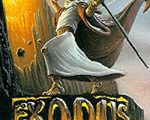
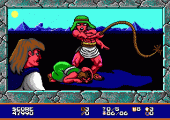
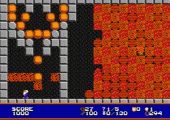
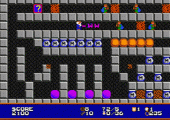
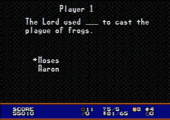
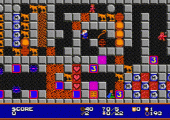
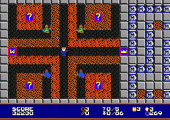
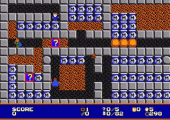
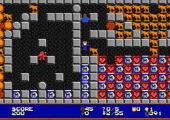
Recent Comments